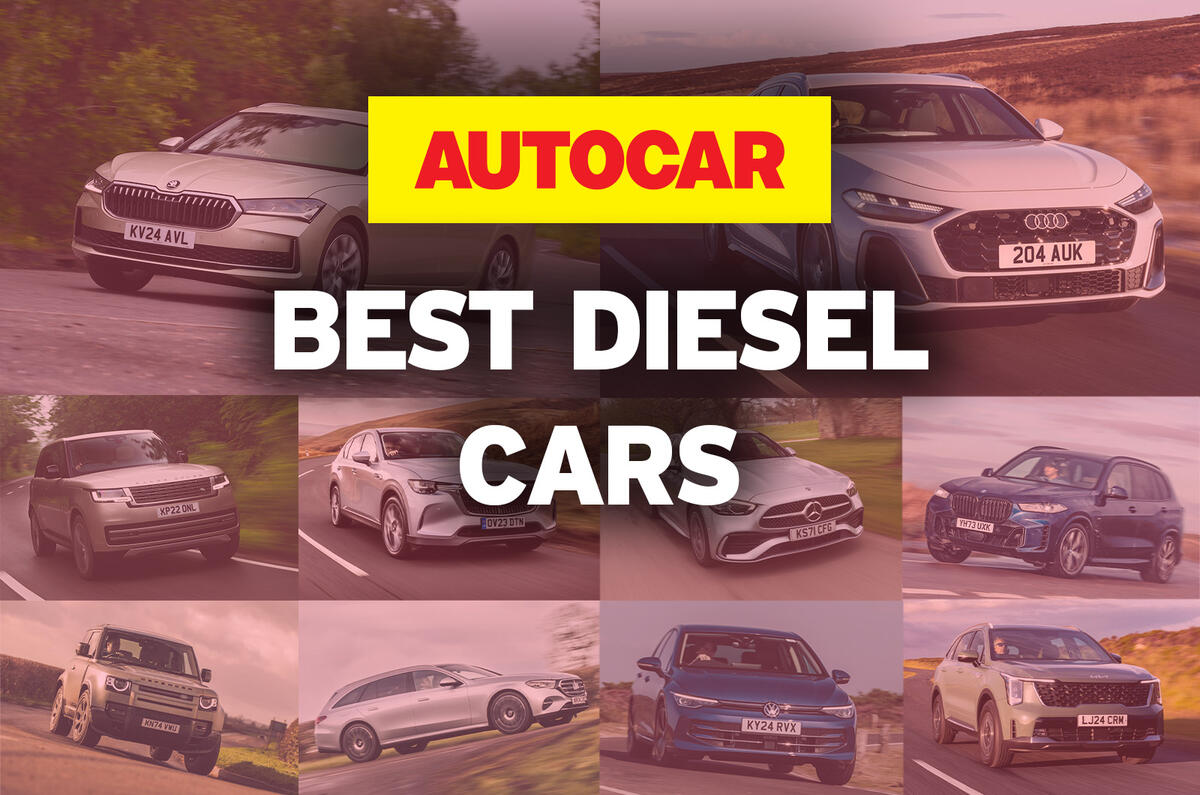The market share of diesel cars may have fallen dramatically, but there's still some way to go until they disappear from our roads completely.
While electric vehicles (EVs) and hybrids are stealing the spotlight, diesels still hold a valuable place in the automotive landscape.
Diesels offer excellent motorway efficiency and strong torque for towing, so they remain a smart choice for high-mileage motorists and those needing a dependable workhorse.
Of course, diesel isn't perfect. Older models are at the mercy of the increasing number of Clean Air Zones popping up in cities around the country, including Oxford, Bristol and Sheffield, while London is encased in its Ultra Low Emission Zone (ULEZ).
Diesels aren't as effective in the city in terms of fuel economy and diesel fuel is surprisingly expensive. But often, for those who live rurally, business travellers and those who want fewer fuel stops on long journeys, the balance often tips back in diesel’s favour.
Even though diesel uptake is dropping year on year, there is still a decent selection of commendable cars available for sale in the UK.
We think the best diesel car on sale today is the Skoda Superb, which impresses for comfort, practicality and fuel economy. But which other diesel models should you consider? Read on for our round-up of the top 10 diesel cars still on sale in the UK.
You will want to get in quick, before the ban on new diesel and petrol cars kicks in in 2030...
Best for: Practicality
The Skoda Superb offers a variety of powertrains, including petrol and plug-in hybrid options. Still, it was the diesel model that achieved a perfect five-star score when we road tested it earlier this year.
The Czech hatchback/estate offers a choice of two diesel engines, both of them familiar Volkswagen Group 2.0-litre TDI units.
In entry-level form, the Superb offers 150bhp and will return 55.4mpg, but we found this was easily exceeded in our six-month long-term test, often hitting upwards of 60mpg.
The more powerful model gets 189bhp and 47.9mpg. Plus it can tow up to 2200kg, which should be enough for most caravans.
The Superb has several qualities, but perhaps its most important is just how easy it is to live with. There’s a huge 690-litre boot, which increases to a capacious 1920 litres with the seats folded down.
Add in accessible driving manners, an intuitive interior and a comfortable ride and you’ve got one of the best all-round cars on sale today, diesel or not.
Read our Skoda Superb review




Join the debate
Add your comment
Balanced and timely read. It’s good to see diesel judged on where it still makes sense—long-distance efficiency, towing and real-world usability—rather than written off entirely. The Superb at the top feels spot on, and the mix of family cars, luxury SUVs and workhorses shows there’s still genuine choice for the right buyer, even as the market shifts. HVAC duct sanitizing
This article provides a very realistic look at the challenges diesel car owners face due to increasingly stringent environmental standards. To help relieve stress after learning about complex policy issues, Unblocked Games is a great choice that brings excitement and refreshment to everyone.
Interesting article! It's true, diesel isn't completely gone yet. I can see the appeal, especially for those long motorway journeys. The fuel efficiency is a real draw. It’s kind of like deciding what to do when your car is being a pain - you could either keep tinkering with it, trying to fix all the problems, or just kick the buddy and move on to something new (like an EV!). But for now, diesel still has a place, especially if those electric charging points are not available. I will consider the Skoda Superb.
It's interesting to see how diesel cars, like the Skoda Superb, are still carving out their niche despite the rise of electric vehicles. Their efficiency and practicality, especially for long journeys, can't be understated. As we navigate the automotive shifts, I hope to see more innovations that blend sustainability with performance. Speaking of blending experiences, have you checked out Crazy Cattle 3D? It's a fun escape that’s worth a look! Crazy Cattle 3D
'Diesel isn't dead yet'? Wow, surprising! Reading about the Skoda Superb getting 55.4mpg makes me think maybe I should reconsider diesel. I saw Cursed Text Generator the best diesel cars listed on Autocar while waiting for my coffee, and honestly, are they really still a smart choice?